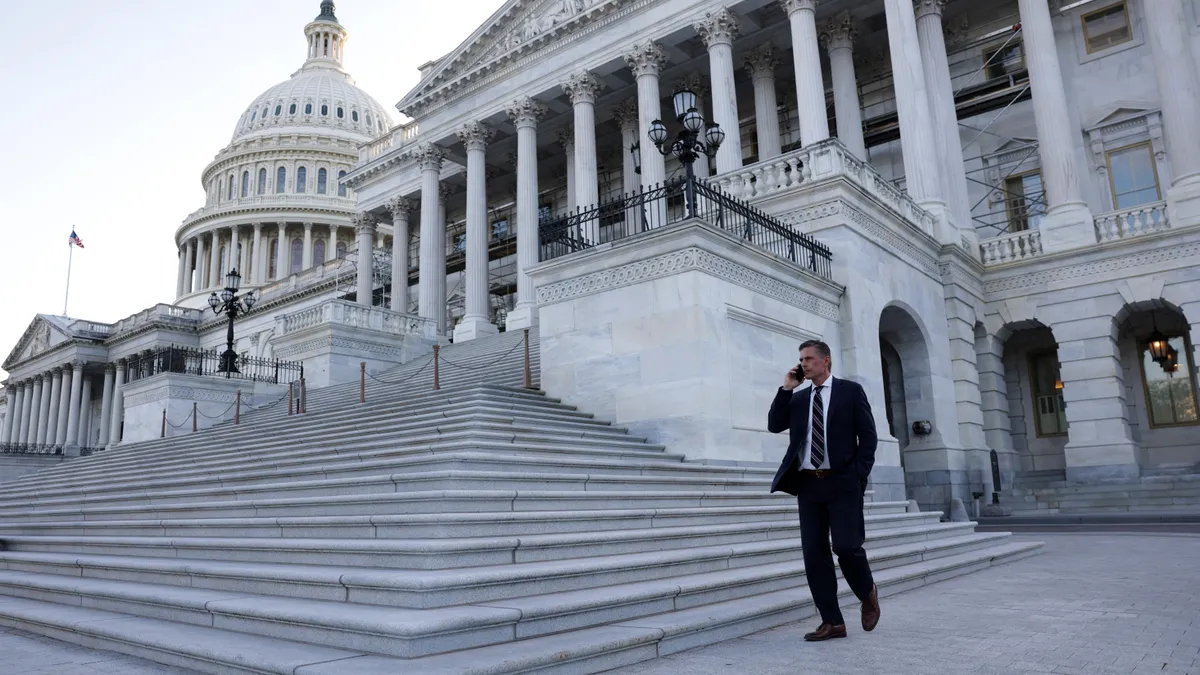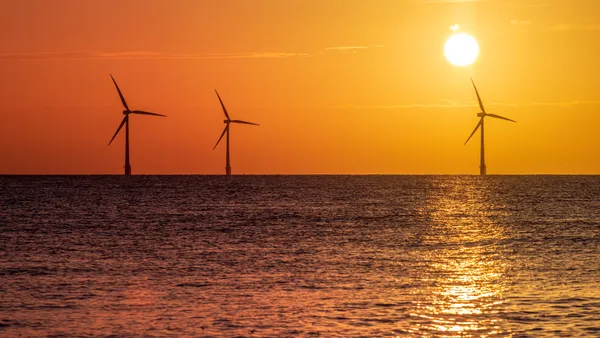Dive Brief:
- Executives at the Edison Electric Institute told Wall Street analysts Tuesday the association is engaging with Congress to pass energy permitting reform legislation after the Energy Independence and Security Act of 2022 failed last year in Congress.
- EEI, which represents investor-owned utilities, is also working with the Federal Energy Regulatory Commission and state agencies on rulemakings on issues such as transmission buildouts. The work will take 10 years or more with “almost all of” that time required for permitting and related regulation, said EEI’s General Counsel and Executive Vice President of Clean Energy Emily Sanford Fisher.
- EEI said utilities were attractive investments last year. The EEI Index, which measures shareholder return for the 39 publicly traded U.S. investor-owned electric companies, delivered a 1.5% return while the Dow Jones Industrial Average, S&P 500 Index and Nasdaq Composite each had negative returns.
Dive Insight:
“This is about some urgency,” Philip Moeller, EEI’s executive vice president of business operations group and regulatory affairs, said about the need for legislative and regulatory action to streamline permitting. “And not only for the clean energy transition, but resource adequacy issues, congestion issues. As we electrify more, we need more transmission, and we need it sooner rather than later.”
The association’s chief strategy officer, Brian Wolff, said EEI is in talks with Sen. Joe Manchin, D-W.Va., and House Republicans and Democrats about advancing permitting reform legislation. EEI expects to work on the issue most of the year, he said.
“I think it’s something we’ll work on throughout most of this year,” Wolff said. “Emily and her team are working on a set of guiding principles so that stakeholders and others can get on board.”
Manchin’s energy permitting reform proposal was “pushed very quickly through the process” at the end of last year, he said. The Senate ultimately rejected adding it to the National Defense Authorization Act.
“We really didn't get a lot of opportunities to make sure that they understood our constructive points,” Wolff said. “So it’s a different process, it's a different year, and we’re treating it as a clean slate. And we've been at it since January, making a little bit of progress.”
Manchin warned in December that a failure to reform permitting would leave “billions and billions” stranded due to unmet transmission needs, even as the Inflation Reduction Act creates unprecedented growth opportunities for clean energy development.
“What we need is some certainty that the permits that are issued, and the environmental reviews that are completed, are durable and can survive legal review – or maybe this is my fantasy that it won't end up in a legal review process,” Fisher said. “As a lawyer, I'll just say it's better if you don't end up in litigation.”
Fisher told the analysts that while permitting reform legislation will be necessary to solve much of the problem, regulatory agencies such as FERC and the Department of Energy possess tools that EEI thinks can accelerate the process of a transmission buildout.
In the meantime, EEI President Tom Kuhn believes that emerging jobs in renewables will be filled without trouble, despite the wind industry reporting struggles to find qualified workers in a study by the National Renewable Energy Laboratory, and a 2021 report from the American Clean Power Association projecting that job growth in the sector will outpace labor supply.
“We're hearing from a number of companies that so many people now want to get into our industry, because they see that we're the solution to environmental issues, we are the solution to climate change,” he said.















